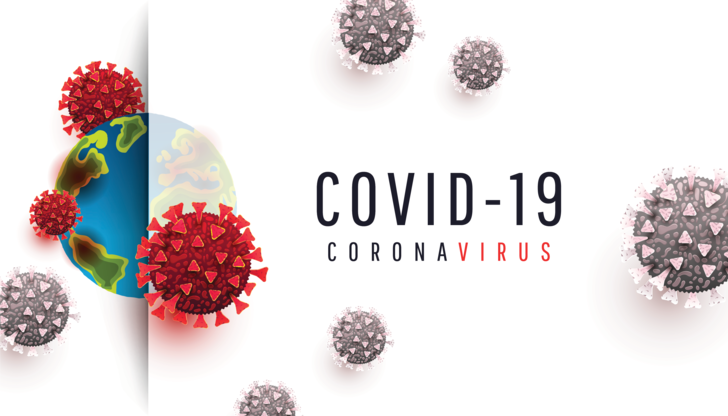During the COVID-19 pandemic, many people have questions about the nature of the virus, how it spreads, and what can be done to prevent it from spreading so rapidly. While handwashing, social distancing, and good hygiene are all essential, there are other angles to look at, too.
Air filtration experts from Camfil Clean Air have added a virus filtration FAQ section to their website, with each of the twelve commonly asked questions explained in depth in both video and text form.
Being educated is one of the best weapons against the spread of the pandemic. Read on for the answers to twelve frequently asked questions about virus filtration during the COVID-2019 pandemic, according to air filtration experts.
12 Questions and Answers about COVID-19 and air filtration
Q: Is COVID-19 spread primarily by air?
A: Long distance airborne transmission is not the primary method of communication. Instead, the disease is primarily spread by respiratory droplets that come from coughs, sneezes, and other fluids expelled by infected individuals.
Q: Can respiratory viruses spread by air?
A: Yes. Droplets infected with a respiratory virus, including COVID-19 and influenza, as described above, can remain airborne for varying amounts of time, depending on their size. They can later be inhaled or picked up after settling on surfaces.
Q: Is there something I can do to quickly mitigate the airborne spread of COVID-19 in my building?
A: Use 100% supply air if you are recycling air to save money on energy. Fresh air dilutes the concentration of viruses in the air created by recirculation and helps reduce the spread of viruses through a building.
Q: Are air filters effective in capturing airborne illnesses?
A: It depends on the efficiency of the air filter. ePM1 filters are most effective in removing infected droplets from the air because they capture particulate matter larger than 1 micrometer. Find out more about ePM1 here.
Q: Are ePM2.5 and ePM10 filters good enough to capture viruses?
A: No. These filters are not built to effectively filter out the smallest particles in the air, which is necessary to see a significant reduction in infected droplets.
Q: Should I upgrade my filters during the outbreak?
A: It depends on what filters you already have in place and whether or not your existing ventilation system will be able to handle higher grade filters.
Q: Can captured viruses be released from the filter back into the airstream?
A: Current research indicates COVID-19 viruses can remain active for a few days under ideal circumstances. When viruses are captured by a filter, they become strongly bound to the fibers within the filter media, dry out and die within a few days.
Q: Should I change out my filter after the outbreak?
A: The virus outbreak does not affect your maintenance schedule. Stick to your regular protocol.
Q: What else will further improve air quality?
A: If you’ve already turned off circulation, you can further improve air quality with the addition of air cleaners and purifiers. Air purifiers and cleaners allow you to apply a significantly higher filtration efficiency to places where it would not otherwise be possible.
Q: How should used air filters be treated?
A: It’s unlikely that viruses will survive inside the air filter until it’s changed, but you should always use good hygienic protocol when changing air filters. This includes long sleeves and pants, disposable gloves, respiratory mask, and eye protection. Seal the used filters inside a bag before moving it.
Q: Is it a good idea to change my filters during the outbreak?
A: Stick to your regular maintenance schedule. If this requires that you change your filters during the pandemic, then do not delay the planned filter change.
Q: Does dual-stage air filtration provide more protection than single-stage?
A: No. Efficiency depends on the filter class of the stages, so dual-stage air filtration isn’t necessarily more effective.
About Camfil USA
For more than half a century, Camfil has been helping people breathe cleaner air. As a leading manufacturer of premium clean air solutions, we provide commercial and industrial systems for air filtration and air pollution control that improve worker and equipment productivity, minimize energy use, and benefit human health and the environment. Camfil firmly believes that the best solutions for our customers are the best solutions for our planet, too. That’s why every step of the way – from design to delivery and across the product life cycle – we consider the impact of what we do on people and on the world around us. Through a fresh approach to problem-solving, innovative design, precise process control and a strong customer focus we aim to conserve more, use less and find better ways – so we can all breathe easier.
The Camfil Group is headquartered in Stockholm, Sweden, and has 28 manufacturing sites, six R&D centers, local sales offices in 26 countries, and 4,180 employees and growing. We proudly serve and support customers in a wide variety of industries and in communities across the world. To discover how Camfil can help you to protect people, processes and the environment, visit us at www.camfil.com.
If you have any further questions about virus filtration during the pandemic and what steps you should take to protect your air supply, contact a Camfil representative.
Media Contact:
Lynne Laake
Camfil USA Air Filters
T: 888.599.6620
F: Friend Camfil USA on Facebook
T: Follow Camfil USA on Twitter
Y: Watch Camfil Videos on YouTube
News via: KISS PR Story Newswire
This news has been published for the above source. Kiss PR Brand Story Press Release News Desk was not involved in the creation of this content. For any service, please contact https://story.kisspr.com.
Source: Camfil Air FILTERS
Release ID: 13064

